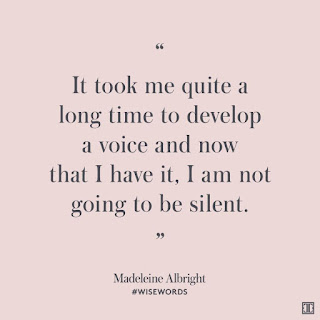Proactive Parenting!! What Parents Need To Know and Do!!
* This blog contains sensitive material which may not be suitable for minors.
April is Child Abuse Prevention Month. As with other wellness issues, it is important to designate time and attention increasing our awareness through on-going education and communication. However, with one in three girls and one in five boys being victimized by the time they are eighteen, I believe it is critical not only to continue our conversation on a daily basis, but it is also imperative to implement Proactive Parenting. Because there are several experts whom I highly respect and who have family friendly resources available to parents or guardians (*see references below), for the purposes of this blog I am going to give you two important strategies for Proactive Parenting.
April is Child Abuse Prevention Month. As with other wellness issues, it is important to designate time and attention increasing our awareness through on-going education and communication. However, with one in three girls and one in five boys being victimized by the time they are eighteen, I believe it is critical not only to continue our conversation on a daily basis, but it is also imperative to implement Proactive Parenting. Because there are several experts whom I highly respect and who have family friendly resources available to parents or guardians (*see references below), for the purposes of this blog I am going to give you two important strategies for Proactive Parenting.
Most responsible parents work hard to provide nurturing, loving, and safe environments for their children.To do otherwise, in my opinion, is shirking the responsibilities of parenthood. At the same time, many of us know that no matter how hard we try to protect our children and to prevent bad things from happening, there are many factors that are simply out of our control. And, as we well know, not only do our children have free will but because their young minds lack good judgment, they sometimes make poor choices that invite harm into their lives. However, it is many times the case that because of the very nature of being children with their vulnerabilities, sensitivities, and trusting inquisitive personalities, our innocent ones are easily targeted, preyed upon, or abused and exploited by highly disturbed individuals. What then, can parents, guardians and those of us trusted with their care do to be more proactive as we parent our children? This is important. Let's examine two parenting principles.
First, integrate into your thinking and apply to your parenting style Proactive Parenting Principle #1. Regardless of the social danger, concern, or challenge, this principle holds true.
#1 - The degree of access or exposure to anyone or consumption of anything
is a predictor to the degree of consequence - positive or negative.
This is important.
The degree of access or exposure to anyone or consumption of anything
is a predictorto the degree of consequence - positive or negative.
Let's look at a few examples of positive consequences with this principle. The more we expose our children to reading early on their lives, typically they become better readers. The more we introduce our children to music, sports, or other interests, the more they are likely to excel or exceed in those areas. On a more serious note, the more access our children have to healthy influences, interests, and environments, typically the more safe and well-adjusted they will be.
Let's also look at this principle and a few examples of negative consequences. If our children largely consume unhealthy foods, the more their health is at risk. The more time our children spend in the sun without protection, the more dangerous it is for their skin. On a very serious note, the more time our children spend on technology without proper guidance, the more at risk they are for visiting unsafe net neighborhoods.The easier our children's access is to drugs, alcohol and other social dangers, the more likely our children are to participate in them.
As we apply this principle to the issue of child abuse, we must understand that although there are never any guarantees to prevention, we - as parents and guardians - must keep an active pulse on our children's degree of access and exposure to any familiar or unfamiliar person or environment. I strongly encourage parents to take a brutal assessment of each and every decision you make for your children regarding how, when, where and with whom they are spending their time, especially if it is time alone with an older individual. And although most parents tend to take a very active interest when their children are younger, often times their oversight diminishes as children age and as they test the rules and expect more freedom. Of course this is understandable, but the dangers do not decrease with age; in fact, as access, exposure or consumption increases, so does the severity of consequence. In next week's blog, I am going to address specific strategies for implementing this parenting principle, but for now do the following:
- Assess each decision you make regarding where your children go, with whom, how much time, and what kind of supervision or oversight is in place (in their real life and cyber life).
- Do your homework.
- Run background checks.
- Trust your gut.
- Stay involved.
- Show up unannounced.
- Be present and available for your child.
In closing for today, I know that this is a lot to take in. And I know that some individuals reading this are themselves survivors of sexual abuse or trauma. It is never to late to reach out and get help. There are so many good people with the same or similar story who have dedicated their lives to helping others and who are passionate about preventing child abuse. Next time, we will discuss more specific Proactive Parenting strategies, but for now I want to leave you with a few resources. These warriors are nationally and internationally known, and I am honored to be associated with them. Please, visit their websites and their materials.
~ Proactive Parenting is not optional...
It is our responsibility ~
It is our responsibility ~
Rise and Shine Movement - "We equip parents to protect kids from sexual abuse. Because it is not a stranger. It's someone you know."
RAINN is a national site that provides a myriad of resources and support. RAINN - Rape, Abuse, Incest National Network
If you are a victim of abuse or your son or daughter has been a victim of abuse within our military, please visit Protect Our Defenders. You are not alone. Support and resources are available for you.
If you are a parent/guardian of a teenager (or a tween- teen) looking for guidance in discovering their worth based on what is important to them and in making healthy decisions for their life, get a copy of Another Way by Holli Kenley, M.A., MFT.
National Safe Helpline - 877 - 995-5246



Comments
Post a Comment